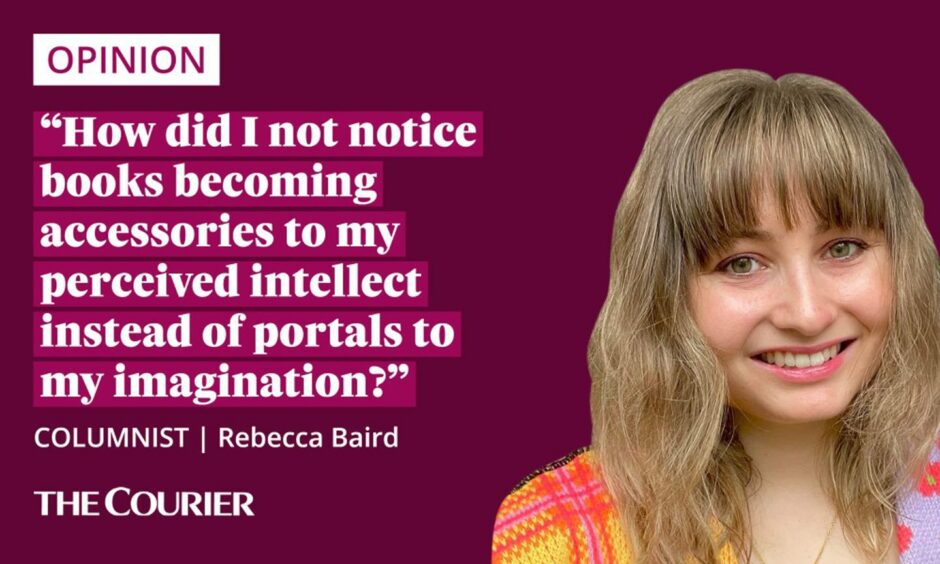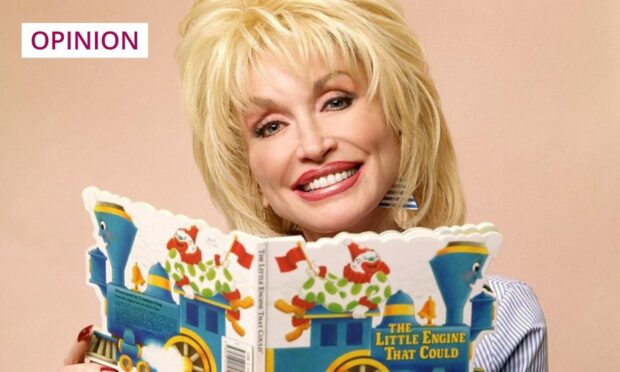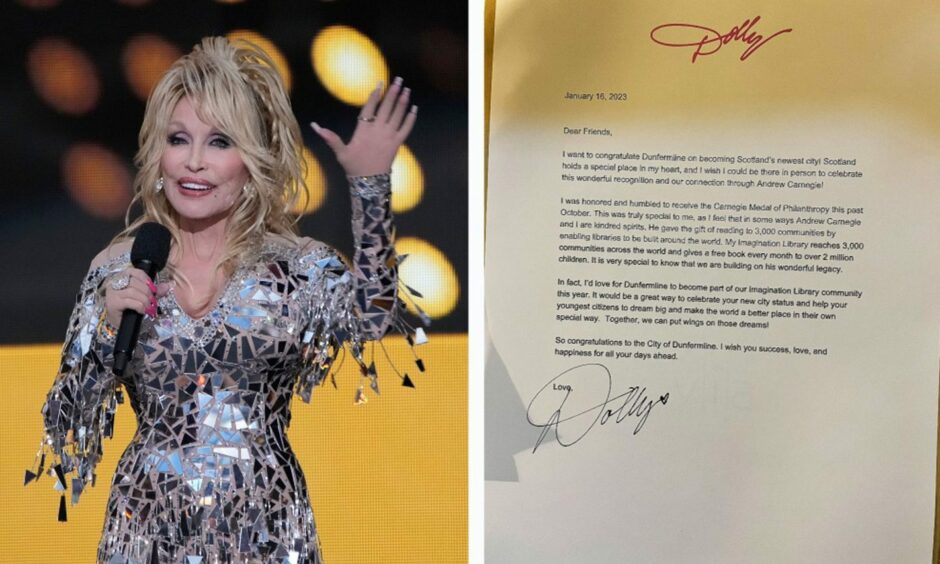Dolly Parton never ceases to delight.
This week, it emerged she has written to the people of Dunfermline, to congratulate them on their new city status.
In her letter, Dolly compares herself to Dunfermline’s famous son Andrew Carnegie, who was also a huge advocate for reading and literacy, calling him a “kindred spirit”.
And it looks like the children of the Fife city could benefit from such a kinship, as Ms Parton said she’d love to include residents in her Imagination Library scheme, which supplies children with free monthly books from birth until age five.
It’s a brilliant idea. But what struck me most upon reading the story was the pace of it – one book a month.

In this age of ravenous content consumption, one book a month sounded, if I’m honest, a little paltry.
I wondered why. And that got me reflecting on my own early introduction to the world of literature.
‘Reading could be a party trick’
Like most writers, I devoured books as a kid. But we didn’t have a lot of money.
So I’d spend Saturday mornings in the children’s section of Grangemouth Public Library, stacking up cartoon covers until I couldn’t see past the pile.
Adults around me were impressed and amused by the sight of me, tiny in my papa’s huge blue armchair, my Saturday stack towering at my side.
Teachers would look on in amazement when I closed one novel and immediately picked another out of my backpack.
I learned that reading could be a party trick to earn praise. And the key was to getting from cover to cover as quickly as possible.
So I read the entire children’s and young adult section of that library. I ate books like a Labrador snaffles forbidden chocolate.
And like that same Labrador, one day, I got sick of them.
I don’t know exactly when it happened, or why.
But at some point between the ages of 10 and 18, I stopped reading books altogether, other than the ones I was assigned by my English teachers.
And when I eventually picked up reading again, just before my 20th birthday, I was surprised to find that I was apprehensive. And so slow.
I’d gone from reading 10 novels a week to taking three months to get through one, a real FGKM (former gifted kid moment).
I’m a bad reader, I thought. Even now, two English degrees and a journalism career later, I still read slowly. And I still feel bad about it.
But now, as an adult, it’s not just about personal pride – it’s about social credibility. Because reading isn’t just for the geeks anymore. The cool kids have found out about books too.
Have influencers gentrified reading?
BookTok, for those not in the know, is a social media subculture, a digital book club on steroids, where ‘bookish influencers’ show off their limited edition hardcovers and artfully-arranged shelves, swapping ‘hot takes’ on trending literature and competing with one another’s ambitious TBR (To Be Read) lists on TikTok.
There are charts and spreadsheets and colour coding to map what’s been read, what’s being read, who liked it and why and when.
These people have created entire online communities (and livelihoods) on the hook of “being a bookworm”.
Fair play to them, I respect the hustle.
@theliteraryloft Was supposed to be taking down the Christmas decor, yet here we are…🙃 #booktok #bookishmerch #bookshelf #bookorganization #bookish #bookclub #organizingbookshelf #bookshelve #bookshelftour #bookshelforganization
It’s a portion of the internet I’m always directed to, as I would appear to be the target audience – young, female, and into literature.
And I’ve tried to be that girl.
But it’s always made me slightly uncomfortable. And I never really understood why, until I was lucky enough to speak to Glaswegian crime writer Denise Mina last month.
‘It’s become performative’
We got on to the subject of reading becoming gentrified, trendy. I thought maybe it was something to do with class.
Mina (much wiser than me) blamed book clubs, both analogue and digital. And her words have been circling in my mind for weeks now.
“It’s become performative, and books are actually about a private time, a secret world,” she said to me.
“And also this thing of ‘I’ve read this many books’ – f*** off. If you’re reading that many books, and you are not changed, you’re not engaging. It’s wasted on you.”
That word ‘performative’ hit me hard. I loved reading at first because I was an only child, solitary and serious and dreamy.
But how many classics have I slogged through in recent years because I wanted to be seen as a serious student?
And how many times have I arranged myself in a coffee shop window with a copy of something French, feeling like a lady in a film and not taking in the words at all?
How did I not notice books becoming accessories to my perceived intellect instead of portals to my imagination?
How much of that library have I held and missed?
We have been, and are still, socialised to see reading as yet another exercise in consumption.
From Netflix to Tinder, we are saturated with choice, and burdened with the expectation that our passions be quantified in order to be justified.
So let’s stop fostering the idea that voracity is the marker of a ‘good’ reader, or that there even is such a thing, and applaud Dolly Parton for getting literally everything right, yet again.













Conversation